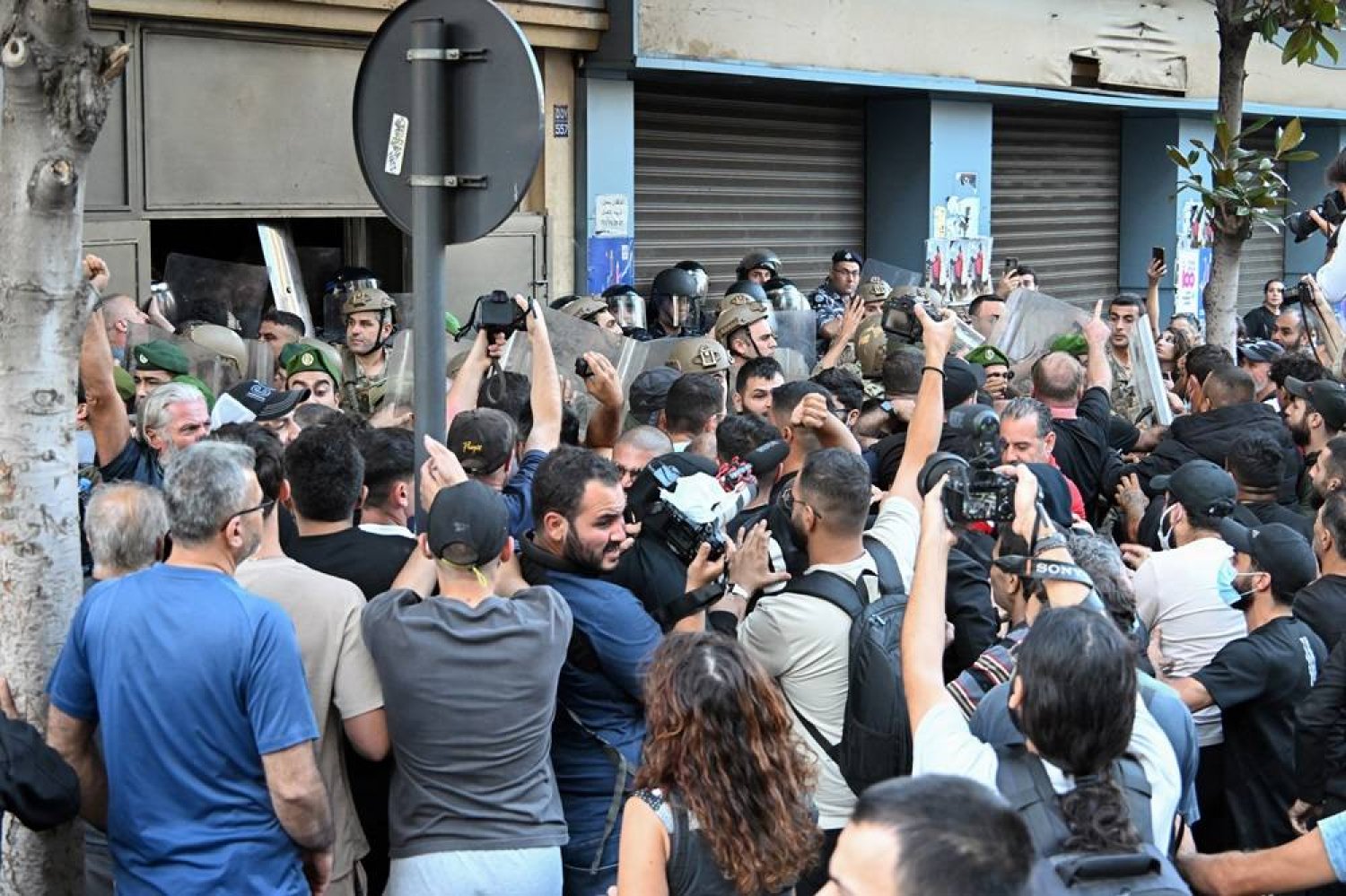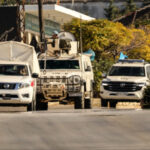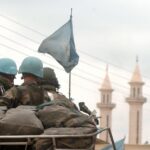Lebanon’s outgoing Minister of Foreign Affairs and Expatriates, Abdallah Bou Habib, has embarked on a week-long European tour aimed at pushing for a ceasefire in Lebanon. On Sunday, the minister began his diplomatic journey with a visit to the Vatican, where he held talks with Cardinal Richard Paul Gallagher, the Vatican’s Secretary for Relations with States.
Bou Habib emphasized the Vatican’s deep concern over Lebanon’s worsening situation, particularly regarding the fate of 16 Christian villages in southern Lebanon. These villages have been severely affected by the ongoing conflict between Hezbollah and Israel. The political stalemate, including the failure to elect a president, has only added to Lebanon’s struggles. “I felt the Vatican’s strong desire to assist Lebanon in overcoming this crisis, and we both agreed on the need to stop the suffering and the killings,” Bou Habib stated following his meeting. He also mentioned that Cardinal Gallagher expressed his admiration for the resilience and success of the Lebanese people despite the country’s hardships.
Diplomatic Mission to Secure Ceasefire
Bou Habib’s European tour seeks to garner diplomatic support for a ceasefire in Lebanon, with a key event being the Paris Conference on October 24, organized by France. The conference aims to gather international aid for Lebanon, which has been devastated by the ongoing conflict. Since September 23, 2023, Hezbollah and Israel have been engaged in intense fighting along Lebanon’s southern border. The conflict escalated when Israel launched a large-scale offensive into southern Lebanon and the Bekaa Valley, resulting in over one million displaced persons, 2,400 deaths, and 11,200 injuries.
In addition to his visit to the Vatican, Bou Habib is scheduled to participate in a meeting of G7 foreign ministers in Pescara, Italy. The G7 group includes Germany, Canada, the United States, France, Italy, Japan, and the United Kingdom. Bou Habib’s invitation to this high-level meeting came from Italian Foreign Minister Antonio Tajani.
Focus on UN Resolution 1701
Bou Habib’s mission in Europe also involves advocating for the full implementation of United Nations Security Council Resolution 1701, which was adopted in 2006 following the Lebanon War. The resolution calls for a ceasefire, disarmament of armed groups, and a stronger presence of the Lebanese army in the south, particularly below the Litani River. Bou Habib seeks an “integral and balanced” application of this resolution, which would enhance Lebanon’s security and stabilize its borders.
One of the key aspects of Bou Habib’s discussions in Europe will be the strengthening of the Lebanese army’s deployment in southern Lebanon. The minister stressed that this move is crucial for safeguarding the region from further conflict and ensuring that the army is in control, as mandated by Resolution 1701.
Humanitarian Crisis in Lebanon
Another major focus of Bou Habib’s European tour is securing humanitarian aid for Lebanon. The Israeli offensive has displaced nearly 1.4 million people, accounting for a quarter of the country’s population. The humanitarian situation in Lebanon is dire, and Bou Habib is urging European nations to send emergency relief to address the immediate needs of those affected by the conflict.
The escalating violence and mass displacement have put enormous pressure on Lebanon’s already strained resources. Bou Habib’s call for humanitarian aid is seen as a critical step in alleviating the suffering of the displaced population. Many families have lost their homes and livelihoods, and the lack of essential services such as food, water, and medical care is exacerbating the crisis.
Lebanon’s Diplomatic Efforts
Bou Habib’s diplomatic push comes at a time when Lebanon is facing both internal and external challenges. Domestically, the country is grappling with a political vacuum, with no president elected, and a government in caretaker mode. Internationally, the conflict with Israel has brought Lebanon into the spotlight once again, highlighting the need for urgent diplomatic solutions to prevent further escalation.
Lebanese Prime Minister Najib Mikati recently stated that Hezbollah has agreed to the terms of Resolution 1701, a key development that could pave the way for a ceasefire. However, the situation remains fragile, and Bou Habib’s European tour is part of a broader effort to solidify international support for Lebanon’s stability and peace.
Conclusion
As Bou Habib continues his European tour, the eyes of the international community are on Lebanon. The outcomes of the Paris Conference and the G7 foreign ministers’ meeting will play a crucial role in shaping the next steps for Lebanon. The country stands at a critical crossroads, with the possibility of either a ceasefire and stabilization or further conflict and humanitarian disaster.
Bou Habib’s meetings with European leaders and institutions are a testament to Lebanon’s diplomatic efforts to seek peace and relief for its people. However, the road ahead is uncertain, and much depends on the international response to Lebanon’s plea for support. As the conflict with Israel rages on, Lebanon’s future hangs in the balance, and the global community’s actions in the coming days will be decisive.
This article is originally published on .lorientlejour.com








